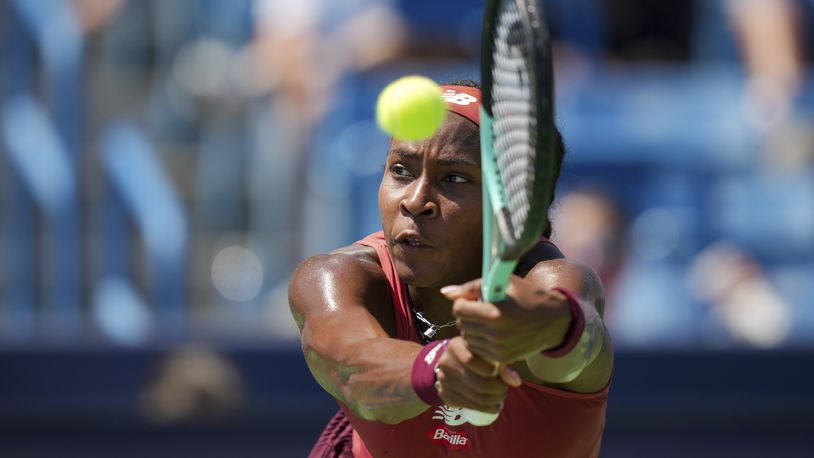“Those will go for much higher numbers to somebody else, probably not in the region,” Barrett said. “I was just worried about keeping the tournament. So we made it very apparent that we would step back. We would cede the name to the tournament, just to be sure it stayed here.”
Beemok Capital, which bought the Cincinnati Masters tournament from the U.S. Tennis Association in 2022, did not answer questions about the naming rights change. It provided a statement:
“We are embarking on a new era for this historic tennis tournament. By investing hundreds of millions and forging new partnerships, we will leverage its storied past and ensure its future as one of the world’s premiere tennis competitions. We look forward to exploring enhancements to this tournament, including the way it’s positioned nationally and internationally, while remaining true to the Cincinnati community and partnerships that made staying here possible.”
Beemok announced Tuesday that it would keep the prestigious tournament in Mason after state and local governments promised $130 million in public funding for a $260 million expansion of the Lindner Family Tennis Center near Kings Island. Those promises were made in a non-binding memorandum of understanding approved by Warren County Commissioners Tuesday.
Western & Southern was among five local companies that pledged $10 million in corporate sponsorship for the 2024 tournament, which is expected to undergo a temporary name change as Beemok courts potential naming rights partners for 2025.
How much the tournament can fetch from naming rights will depend on whether bidders view it as a global or regional event, said Adam Beissel, an assistant professor who teaches sports-business classes at Miami University.
“I would expect a deal in the range of 20 years at maybe 20 to $30 million over the length of the deal, or about one to $1.5 million per year,” Beissel said. “It’s not really about a return on investment for those title sponsors or expanding your brand reach. What naming rights deals are really about is you’re paying a premium for the perks of entertaining your clients, rewarding your consumers and there’s nothing better than sealing a deal with some courtside seats.”
Because the tournament is an ATP Masters 1000 and WTA 1000 event, it’s already one of the world’s nine biggest tournaments where both men and women compete at the same time. But in 2025, it will expand from nine to 12 days with 96 players instead of the 56 now in its single-player draw.
“It’s two weeks, international television,” Barrett said. “To the right brand that’s selling product worldwide, it might be worth an awful lot.”
Western & Southern has been a tournament sponsor since 2001, making it one of the longest-active partnerships in tennis.
“We invested an awful lot of money in it in the last 20 years to bring in a number three level tennis tournament for women,” Barrett said. “We got it up to the top level. And we got (women) on the same time and the same page (as men). There’s only a few tournaments in the world that do that.”
That history is one reason Western & Southern tried to buy the tournament, only to be outbid by Beemok owner Ben Navarro.
“What we would have done is much along the lines of what Ben’s going to do,” Barrett said. “We wanted to put some heart and soul into the tournament. We were just a sponsor. We weren’t a manager. And there’s so many things we wanted to do differently. The music, the food, the ambience.”
While he’s optimistic for the tournament’s future, he admits it won’t be easy to step away from the role of title sponsor.
“It’s like when your kid gets out of college and moves somewhere else,” said Barrett. “After 22 years, you go, ‘Well, we had a great run — and no regrets.’”
About the Author
